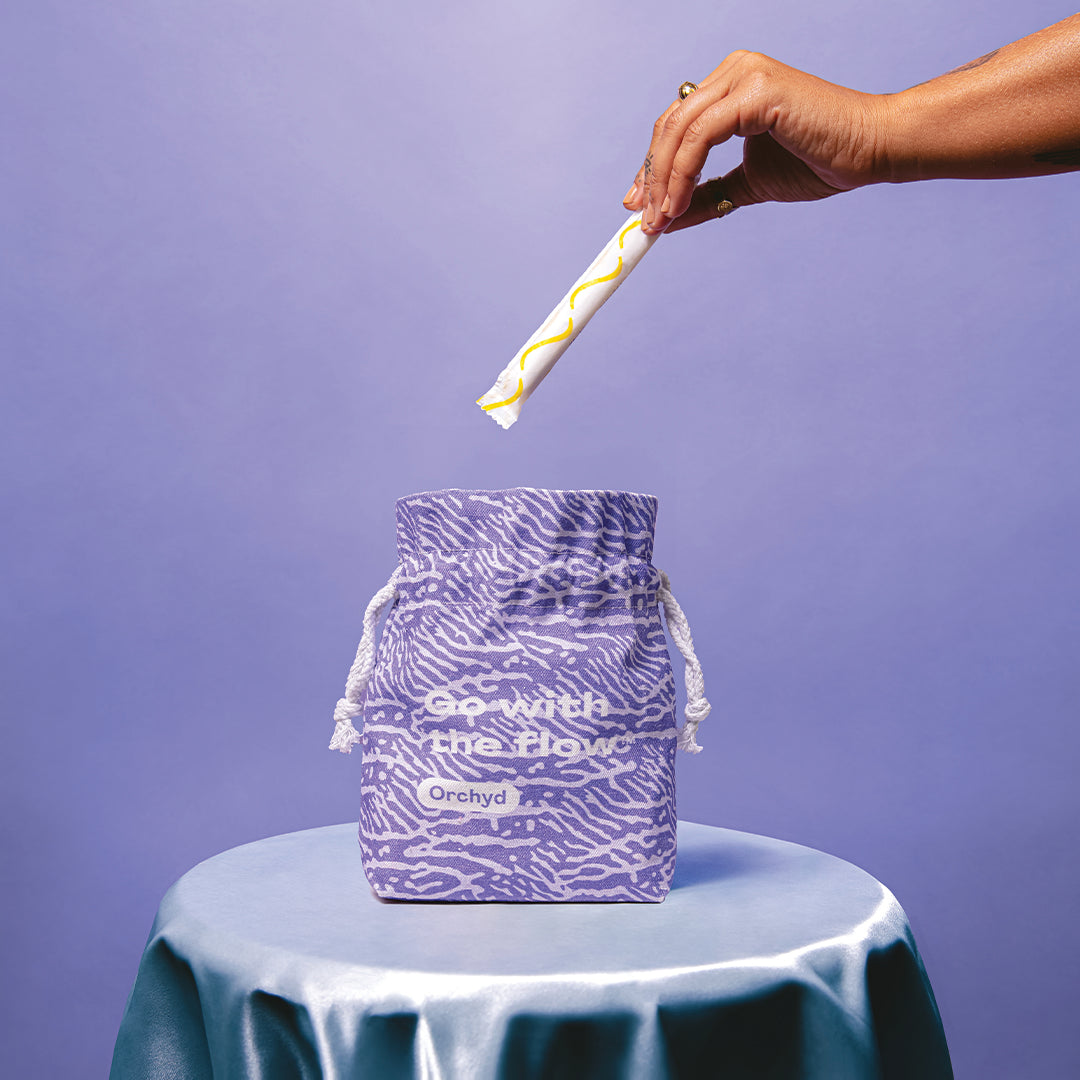
Inclusive Language & Menstruation
Share
It can be unexpected when that time of the month rolls around. If you don't have an exact way to track your cycle, or you just lost track of time, that bloody reminder can be startling. You may lament over how it slipped your mind and find yourself uttering a fairly common phrase, "Oh yeah, I forgot I was a woman." While it seems like an innocuous statement, it is actually an outdated phrase that can leave many people feeling left out of the conversation.
"But," you say, "that seems silly. How can a throwaway phrase like that be damaging? It's just a joke." While it may be a joke, there are tons of individuals who have been fighting for a place in the menstruation conversation. Such a throwaway phrase can perpetuate many of the dangerous extremes surrounding these topics.
"But how can words do all of that?"
Most textbook definitions state that a woman is someone who has female reproductive organs, XX chromosomes, and goes through a menstrual cycle. But not everyone who has these traits identifies as a woman, and not everyone who identifies as a woman has these traits. By setting these rigid definitions, we are promoting the idea that gender is binary. This is especially damaging as many people now identify with a more fluid gender expression.
Even with the vast scale of the gender spectrum, it is unfortunately common to use exclusionary language to refer to shared experiences. Associating "womanhood" with periods excludes many individuals' life experiences, including, but not limited to, transmasculine people, nonbinary people, transwomen, infertile women, menopausal women, and women who have never menstruated because of different reproductive organs.
By equating periods with being a woman, you're essentially stating that only cisgender women have a place at the table for period talk. This line of thinking is exclusionary and antiquated. We cannot reduce what womanhood is to the menstrual cycle, just as we cannot reduce the menstrual cycle to femininity. By making these claims, we run the risk of further outcasting those who already feel excluded. Transitioning over to terms and phrases that are more gender-neutral is one way to combat this rigidity.
We still have a long way to go with this work. Especially as menstrual products are consistently branded and marketed as "feminine hygiene" and focus entirely on cisgendered women. Because these companies and even our own culture are based on supply and demand, we have to demand gender inclusivity.
It starts small, like changing the way we talk about people who menstruate, fertility, and other traditionally gendered topics. If we begin by transforming the language we use into something more inclusive and open, other people, including companies, will follow suit. We have already seen a rise in inclusive marketing efforts and small companies emerging with loyal customer bases for merely being more gender-neutral in their product lines.
We have our fingers on the pulse of change, but it starts with changing how we view things ourselves. Once we break down the rigid barriers of gender normativity, we can start changing how we talk about these universal experiences. Watching what you say and being more generally inclusive can change so much without even realizing it. So make the change for others.

